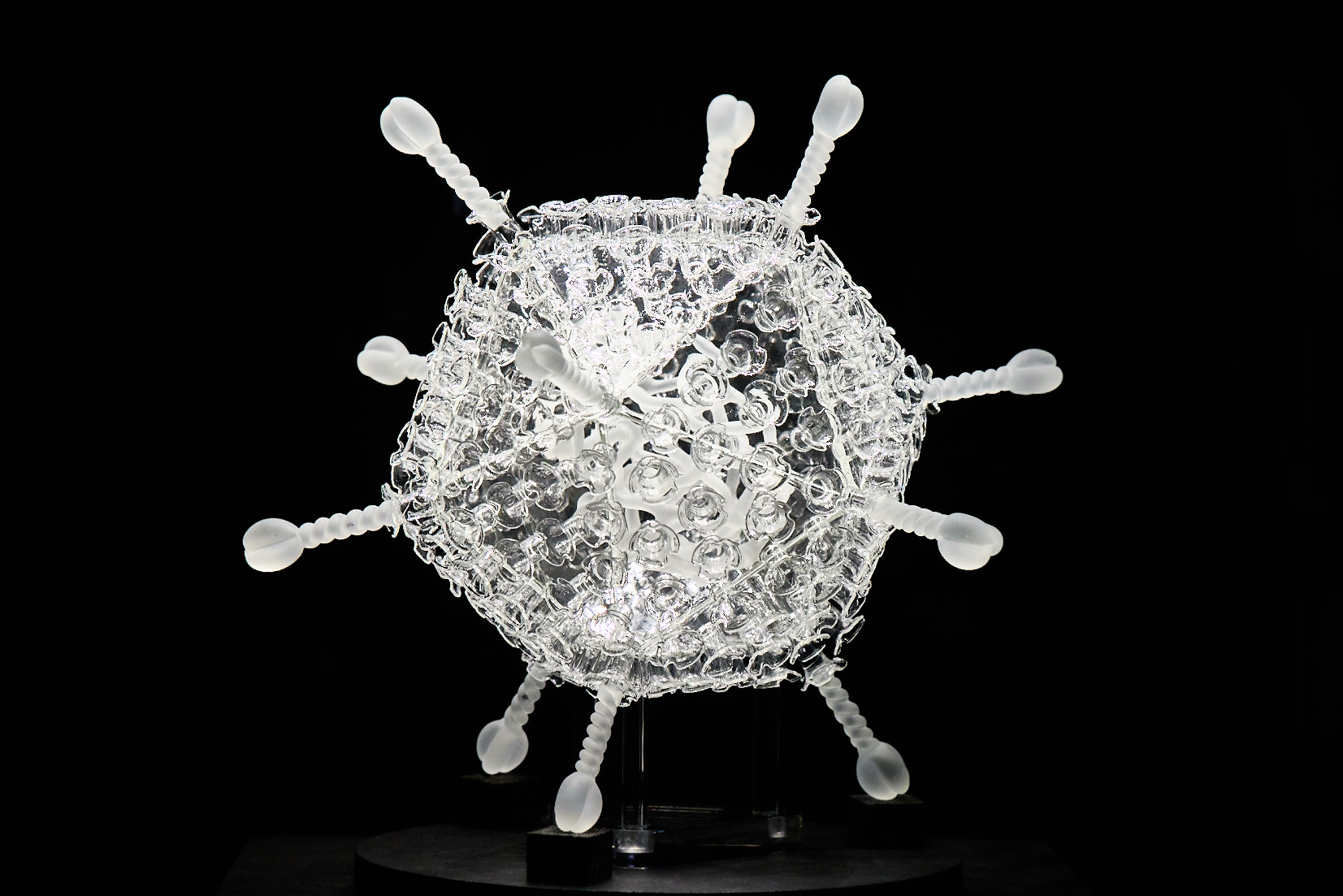
Luke Jerram’s glass sculpture of a nanoparticle of the Oxford-AstraZeneca vaccine, courtesy of the History of Science Museum.
On 4th January 2021 the NHS became the first health service in the world to roll out the Oxford-AstraZeneca COVID-19 vaccine. The first person to receive a dose was 82-year-old Oxford resident Brian Pinker, who had travelled to Oxford University Hospital to receive the jab at 7:30am. This milestone event exactly one year ago today was the result of a year’s intensive work to develop a vaccine by a small team led by Professor Sarah Gilbert at the University’s Jenner Institute. As of November, over 2 billion doses of the vaccine have been released for supply to more than 170 countries, with a 3 billion target set by AstraZeneca for the end of 2021.
The project
Collecting COVID is an exciting two-year collaborative project (funded by the E P A Cephalosporin Fund) between the Bodleian Libraries and History of Science Museum. The project aims to capture the extraordinary story of the University’s COVID-19 research response and to preserve and share it with future generations.
We are inviting members of the University who have been involved in shaping this response to contribute material to a contemporary collection that will inform research on the current pandemic and aid preparation for any potential future global health emergencies.
What are we looking for?
We are keen to hear from anyone at the University who can identify any of the following for the collection…
Objects from individuals and teams across the University such as:
- Equipment relating to COVID-19 research and clinical practice including testing, vaccination and treatment
- Personal items, photos, artwork or ephemera relating to the impact of COVID-19 on the work and personal lives of staff
Personal digital or physical records of individuals and teams who were involved in developing the University response to COVID-19 (e.g., academic and clinical research or social policy recommendations):
- Correspondence
- Diaries (current and retrospective)
- Laboratory and research notebooks
- Working papers
- Draft and unpublished articles
- Photographs and videos
Websites, blogs, or Twitter feeds, which help to develop the narrative behind the University’s efforts during the pandemic can be nominated for archiving in the Bodleian Libraries Web Archive.
Personal testimonies and recollections of daily life during the pandemic from those who were directly involved in the University’s response to it (which could be in the form of a short memoir or account of experiences).
What happens next?
Once objects or records have been identified (either by submission or through direct contact by the team), we will set up a meeting to discuss the donation to ascertain its suitability for inclusion in the collection. We will then arrange a visit to survey the material before it is transferred to either the library or museum. Once on-site the material will be appraised, accessioned, catalogued and eventually made available for research and public engagement activities.
We are extremely keen to speak with individuals and teams who would like to contribute to the collection, or may be able to help us to identify important material at risk of loss. General enquiries and submissions can be sent to Michaela Garland (Project Archivist) and Tina Eyre (Project Curator) at collectingcovid@glam.ox.ac.uk